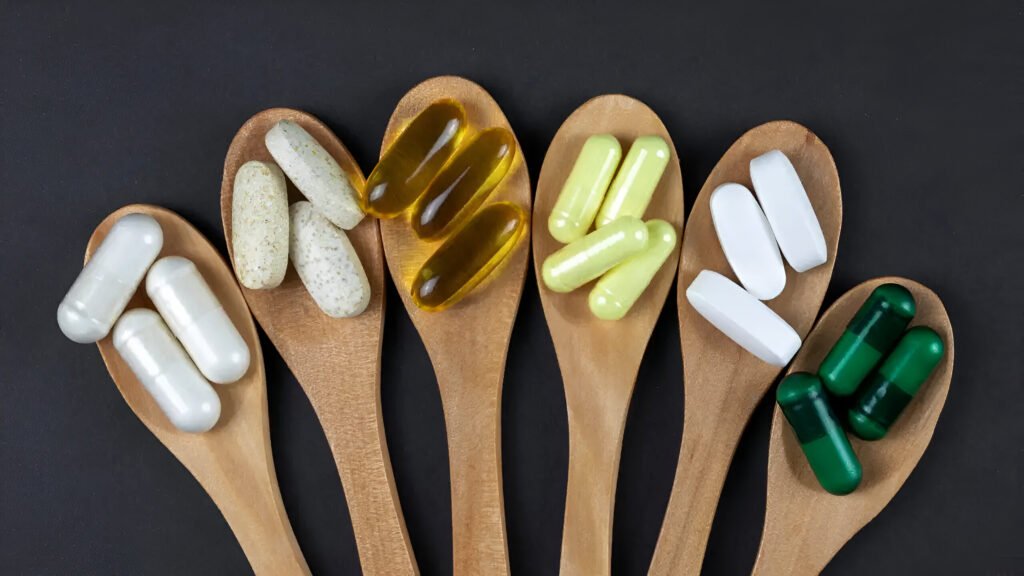
Entering your 30s often feels like business as usual—until it doesn’t. Suddenly, late nights hit harder, stress lingers longer, and recovery isn’t what it used to be. These small changes aren’t dramatic signs of aging; they’re your body’s way of communicating the need for more thoughtful attention. And although a healthy diet is the foundation of good health, it also happens to be true that modern life doesn’t always cooperate with eating enough food to obtain all your body needs.
This is where the correct supplements enter the picture—not as substitutes, but as reinforcements. Imagine them as little, deliberate investments in your future self. What follows are six thoroughly researched supplements that are well worth considering during your 30s to aid in supporting long-term health, energy, and resilience.
1. A Smarter Multivitamin
Multivitamins are sometimes thought of as a nutritional safety net, and rightfully so. Though someone with a flawless diet may not require them, the majority of individuals come up short in some category—particularly with hectic lifestyles, missed meals, or dietary restrictions. During your 30s, even tiny gaps in vitamins or minerals can start to manifest as fatigue, low mood, or compromised immunity.
Yet the most important thing isn’t even taking a multivitamin—just selecting one. Opt for products that forego synthetic fillers and use bioavailable sources such as methylated B12, folate, and chelated minerals. A multivitamin should gently support your body, not overload it with megadoses.
2. Calcium, with Its Essential Partners
By the time you hit your 30s, bone density quietly begins to decline, especially for women. This makes calcium important—but only when paired correctly. Supplementing with calcium alone can do more harm than good if it ends up being deposited in soft tissues like arteries instead of bones.
For calcium to be effectively absorbed and used where it’s needed, it should be combined with vitamin D3 and vitamin K2. These nutrients help direct calcium to the bones while keeping it out of the bloodstream, supporting both skeletal and cardiovascular health. As always, try to prioritize calcium-rich foods—like leafy greens, seeds, and dairy—and use supplements to fill in the gaps when necessary.
3. Vitamin C: More Than Immunity
Often marketed as a go-to for colds, vitamin C is much more than just an immune booster. It plays a role in collagen production, wound healing, and iron absorption—all of which become more relevant as the body’s regenerative pace slows down.
In your 30s, when stress levels rise and environmental exposure (pollution, UV, etc.) increases, consistent vitamin C intake can help maintain skin elasticity and support your body’s ability to repair itself. While a deficiency is rare, many people fall short of optimal levels, especially during high-stress periods. Including more citrus fruits, berries, and bell peppers in your meals is a great start, but supplementation can offer extra support when needed.

4. Iron: Only If You Need It
Iron plays a vital role in oxygen transport and energy production. Low levels can lead to fatigue, brain fog, pale skin, and even shortness of breath. However, this is one supplement where more isn’t always better.
Iron should only be taken if a blood test confirms a deficiency. Over-supplementation can lead to toxicity and organ stress. Women with heavy menstrual cycles, vegetarians, and individuals with absorption issues are more prone to low iron and may benefit from targeted supplementation. Always consult a doctor before adding iron to your routine.
5. Protein: Not Just for Gym – Goers
Starting in your 30s, the body begins to lose muscle mass gradually—a process called sarcopenia. This doesn’t just affect strength and appearance; it also slows metabolism, reduces mobility, and impacts immune function over time.
Ensuring adequate protein intake is essential. While whole food sources like lentils, eggs, tofu, and lean meats are ideal, protein powders can fill the gap—especially for those who skip meals, follow vegetarian or vegan diets, or are trying to manage their weight. Clean whey or high-quality plant-based powders can help preserve muscle mass and energy without adding unnecessary additives.
6. Biotin: Small but Sometimes Mighty
Biotin, also known as vitamin B7, is often hailed as the miracle solution for hair and nail growth. In reality, biotin only helps when there’s a deficiency—which is rare. That said, some people in their 30s, particularly women experiencing post-pregnancy hair loss or stress-related shedding, do notice improvement when taking it alongside other nutrients like zinc, iron, and silica.
It’s important not to overdo it. High doses of biotin can interfere with lab test results, particularly for thyroid or heart conditions. If you choose to include it in your supplement stack, go with moderate doses and combine it with an overall nutrient-dense diet.
Final Thoughts
Your 30s are less about fighting age and more about laying the groundwork for lasting health. Supplements aren’t magic pills—but they are tools. When used with intention and backed by personal need or medical guidance, they can help you navigate this decade with more energy, strength, and resilience.
Not all supplements are created equal, and your body doesn’t need everything. But by listening closely to what it’s asking for—and staying consistent with good choices—you’re investing in a version of yourself that stays vibrant well beyond your 30s.







